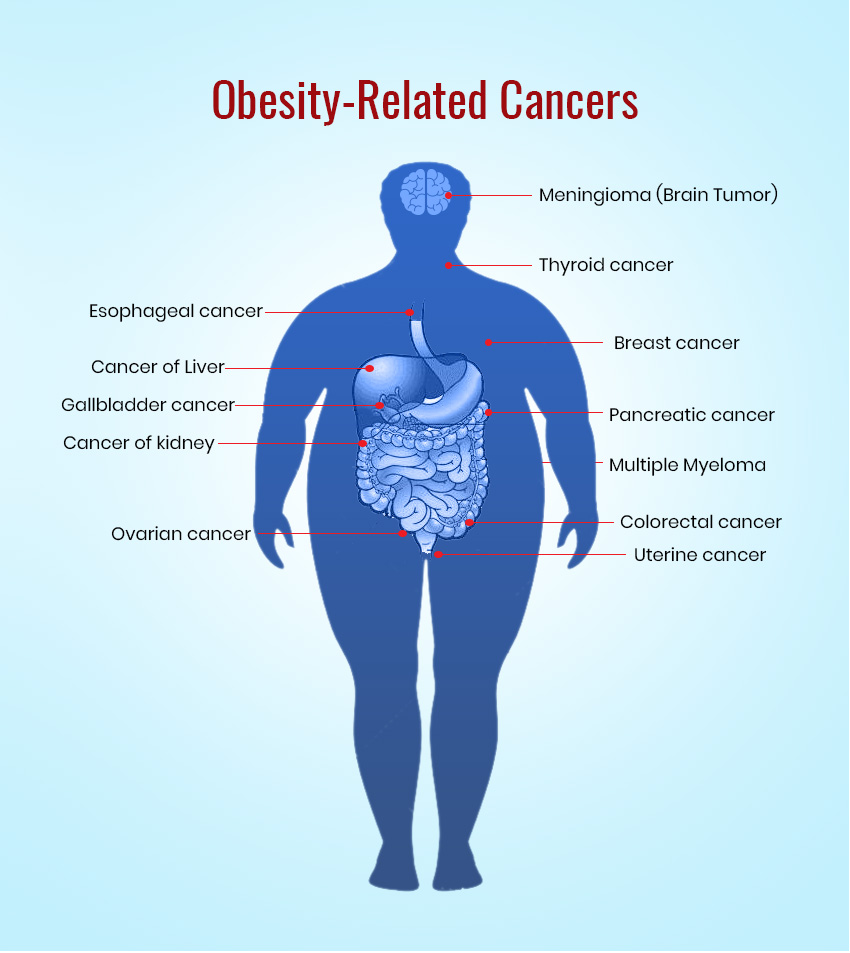Cancers that are often associated with or caused by obesity are rising at an increasingly faster rate in younger U.S. generations than in older generations, according to the American Cancer Society.
It is found that in the past 40 years, there has been a sharp rise in obesity that may have increased the risk of cancer in millennials.
The American Cancer Society analyzed and evaluated millions of health records between 1995 and 2014, releasing its results in The Lancet Public Health.
Researchers have found that in the last few decades or so, there has been intensifying evidence that certain cancers can be associated with obesity.
They were able to find that the rates of 6 out of 12 cancers associated with obesity, such as colorectal, gallbladder, uterine, kidney, pancreatic, and multiple myeloma all rose, especially in people below the age of 50. Also, they found a steeper rise in younger generations, especially in millennials, in their 20s and 30s.
For instance, the risks of uterine, colorectal, and gallbladder cancers have doubled for millennials when compared with the baby boomers.
Researchers explain that this type of steep rise in obesity is because younger generations are experiencing earlier and long-term exposure to the dangers of overweight.
Dr. Ahmedin Jemal, a researcher from the American Cancer Society, said, “Our findings expose a recent change that could serve as a warning of an increased burden of obesity-related cancers to come in older adults. Most cancers occur in older adults, which means that as the young people in our study age, the burden of obesity-related cancer cases and deaths are likely to increase even more.”
However, the researchers failed to explain why the rates of only 6 out of the 12 obesity-related cancers have increased.
In the meantime, they were able to find that cancers related to smoking and infections were falling in younger age groups.
Dr. Brenda Birmann, associated epidemiologist, Brigham and Women’s Hospital in Boston, told the Lancet Public Health, “It was possible that risk factors other than obesity could play a part and this warranted further investigation. “Importantly, the findings suggest the need for further close epidemiological monitoring of cancer incidence trends in younger adults.”
Cancers associated with obesity

Obesity is the second largest preventable cause of cancer in the UK after smoking, the charity Cancer Research UK said.
Researchers found that bowel cancer, uterine cancer, esophageal (food pipe) cancer, cancer of the liver, kidney, upper stomach, gallbladder, ovaries, thyroid, meningioma (brain tumor), multiple myeloma, and breast cancer in women after the climacteric age have all been associated with obesity.
They say the risk of cancer increases with people getting overweight or obese.
Obesity is one of the potential causes of cancer. However, there could be other issues, such as the environment, genetics, etc.
Not all of them who get these cancers will be obese or overweight, and all who are obese will not essentially get these cancers. Health experts suggest that shedding even some pounds can help reduce the cancer risk in most people.






















